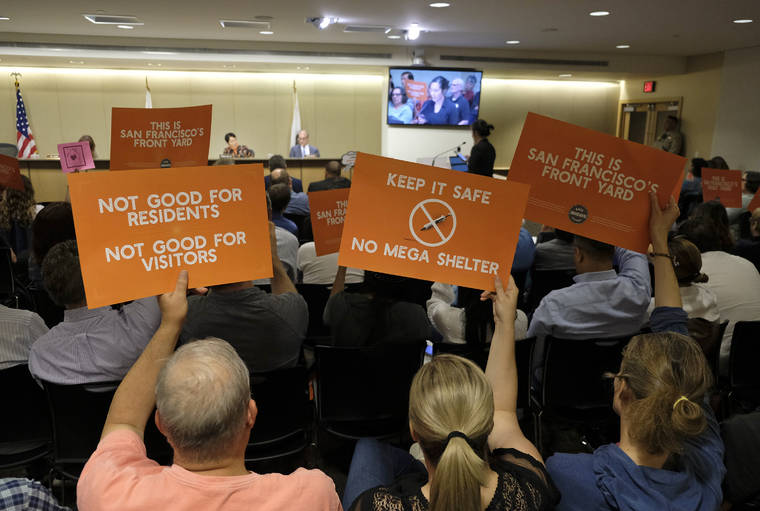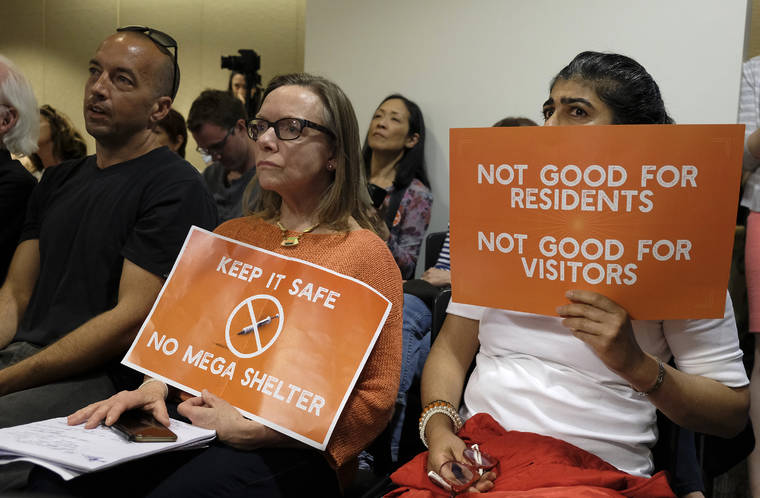SAN FRANCISCO — Supporters and opponents of a proposed homeless shelter along San Francisco’s waterfront packed a Tuesday meeting of port commissioners, who will decide whether to lease the land to the city.
Mayor London Breed proposed the shelter to house up to 200 people, saying it is part of her plan to build 1,000 new shelter beds by 2020. The announcement came as a surprise to many residents who have turned up at hearings to protest, saying the location that is popular with residents and tourists is inappropriate for such a shelter.
The testimony was heated, with supporters calling critics hateful and critics saying that they resented being called names.
Resident Janet Lawson, who is opposed to the shelter, said that the music festival Woodstock was better organized than the shelter layout. And she criticized Breed for thinking about the next election instead of listening to concerned residents.
“By no means does anyone believe this is the only spot for this place,” Lawson said, adding that the city’s billionaire tech leaders should offer space. “Why not ask Mark Zuckerberg to give up one of his floors?”
Neighbor Wallace Lee threatened legal action if the port approved the deal.
“We all know the mayor is desperate to get this shelter built in five months … to fulfill a campaign promise,” he said.
But Jennifer Friedenbach of the San Francisco Coalition on Homelessness said that signs in the room rejecting the shelter are symbolic of “unbridled entitlement.”
“Commissioners, I know this is uncomfortable for you, but stand up to the hate,” she said. “Class bias has turned into class hate.”
Homeless services worker Marnie Regan said she was taken aback by the vitriol in the room and urged opponents to talk to people who are homeless.
“These are humans who need to be housed,” she said. “This is about people dying, not about your goddamn property values.”
Staff are recommending commissioners approve an initial two-year lease with the city’s homelessness department, with a possible option for another two-year extension. The Port of San Francisco owns the land for the proposed shelter site.
There are at least 1,000 people on a waiting list for shelter beds, said Jeff Kositsky, director of the city’s Department of Homelessness & Supportive Housing. He said the department has received hundreds of phone calls and emails on the subject.
More than 4,000 people sleep unsheltered each night in a city of about 885,000.
San Francisco struggles with income and housing inequity, with homes among the most expensive in the country.
San Francisco companies Pinterest and Lyft recently went public, and Uber and Slack are coming soon, driving fears that newly minted millionaires will snap up the few family homes left for under $2 million.



